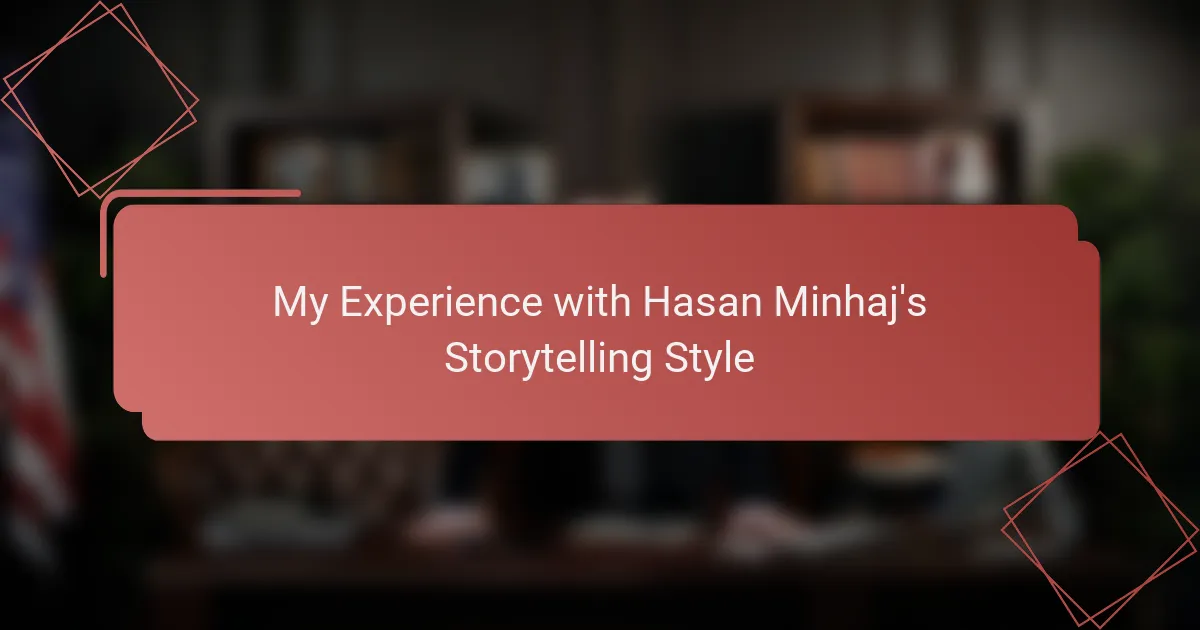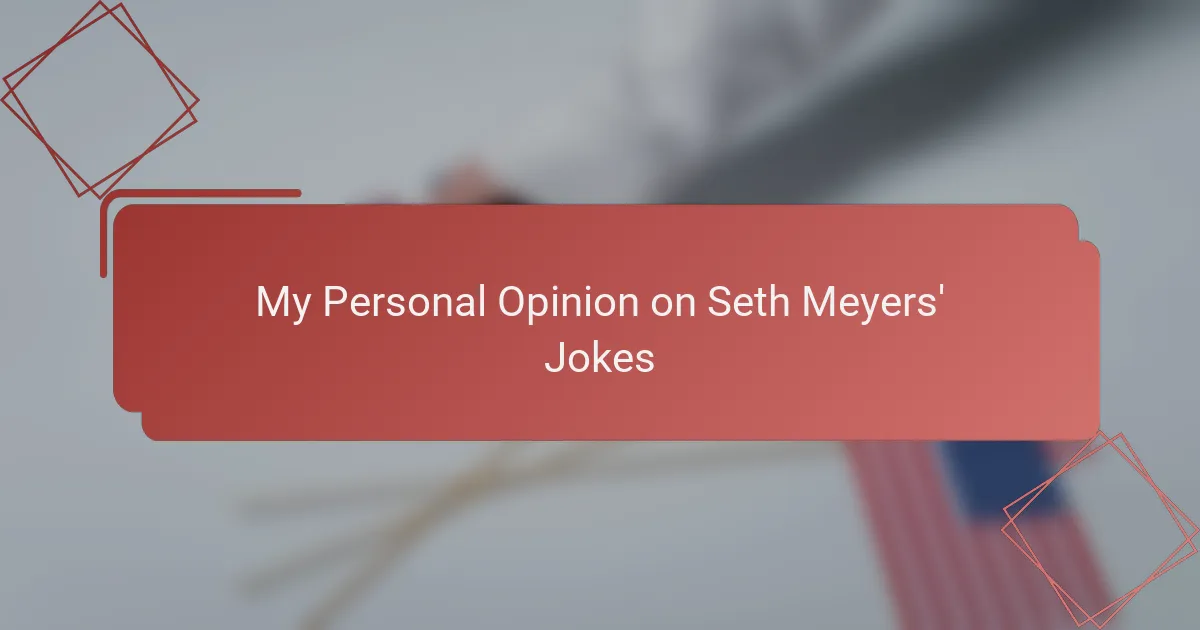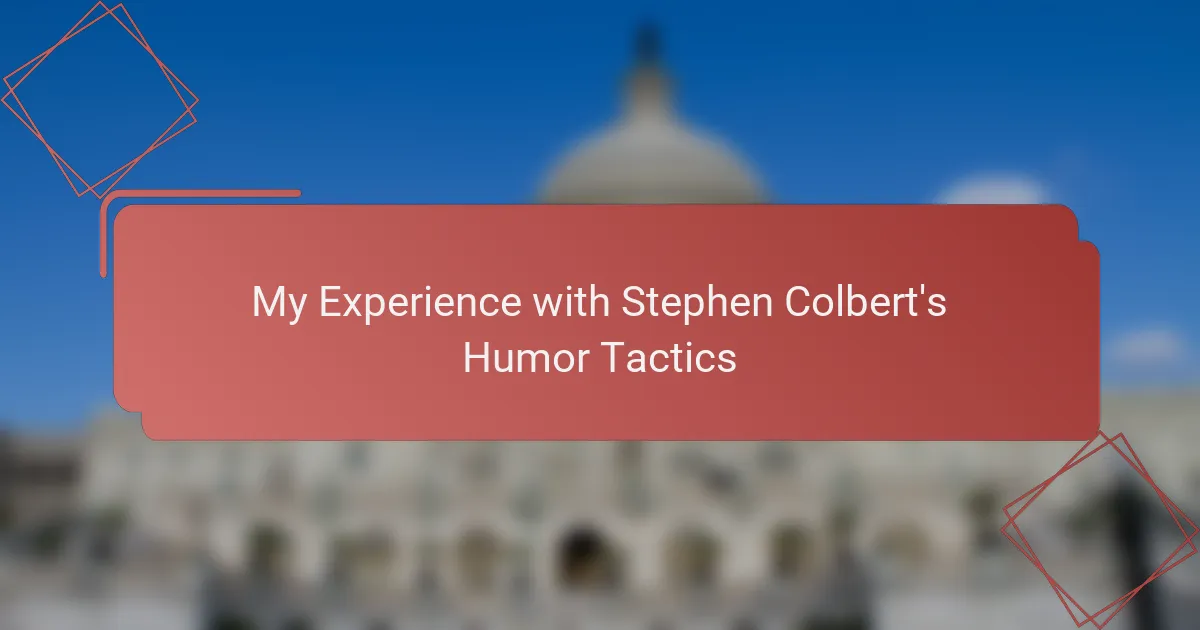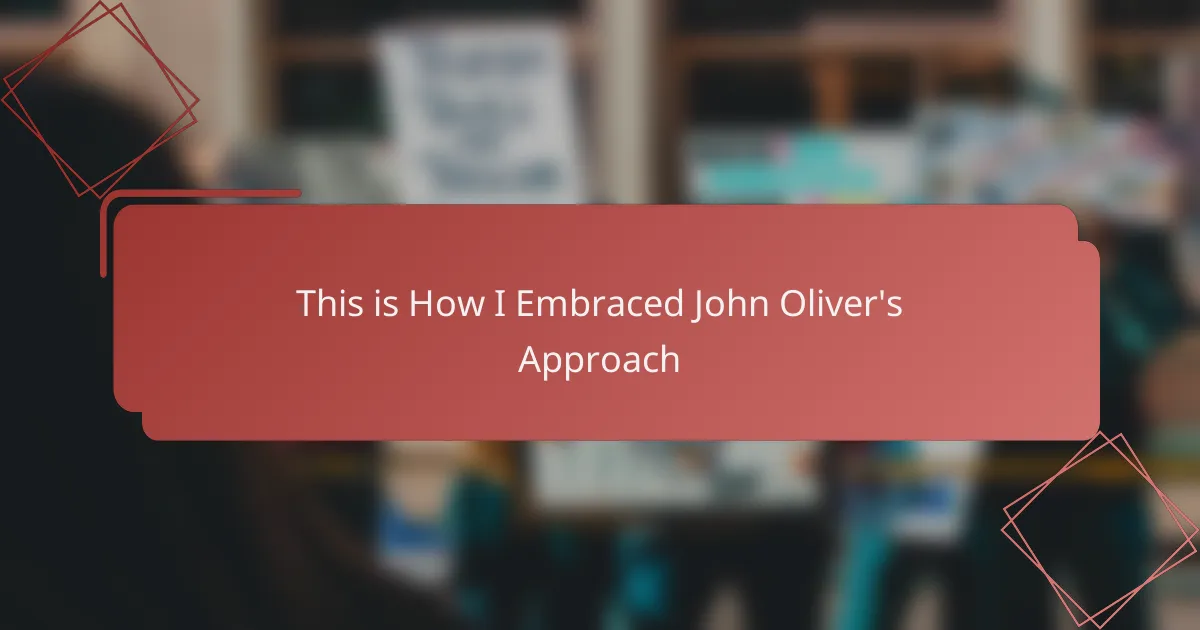Key takeaways
- Political satire effectively critiques issues using humor and personal storytelling, encouraging reflection and engagement.
- Hasan Minhaj’s style combines personal anecdotes, factual data, and a conversational tone to humanize complex political topics.
- His performances balance humor with critical insights, making serious themes accessible without diluting their importance.
- Minhaj’s unique approach fosters an emotional connection while challenging dominant political narratives, enhancing audience relatability.
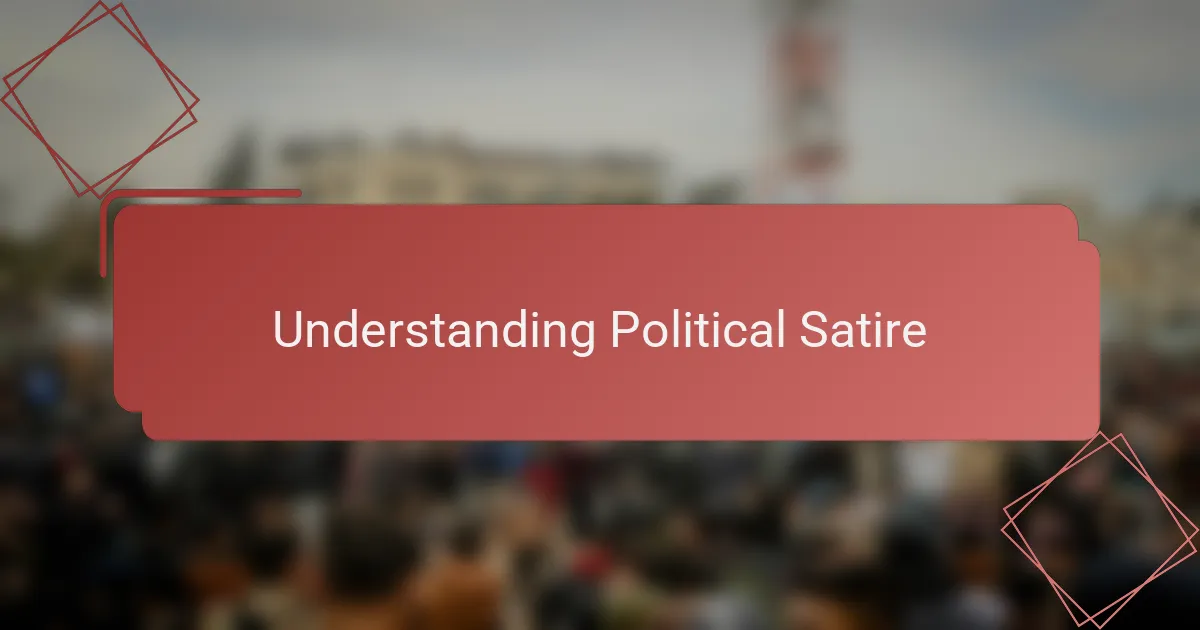
Understanding Political Satire
Political satire is a powerful tool that uses humor and irony to critique political events and figures. From my experience, it’s not just about making people laugh; it’s about provoking thought and challenging the status quo. I’ve often found myself reflecting deeply after watching Hasan Minhaj, because his satire blends personal storytelling with sharp political commentary in a way that feels both entertaining and enlightening.
| Aspect | Description |
|---|---|
| Purpose | To criticize and expose political issues through humor and irony |
| Tone | Witty, sarcastic, often biting but thoughtful |
| Emotional Impact | Encourages reflection, sometimes discomfort, alongside laughter |
| Engagement Style | Combines factual critique with relatable, personal anecdotes |
| Effect on Audience | Raises awareness and encourages questioning of political narratives |
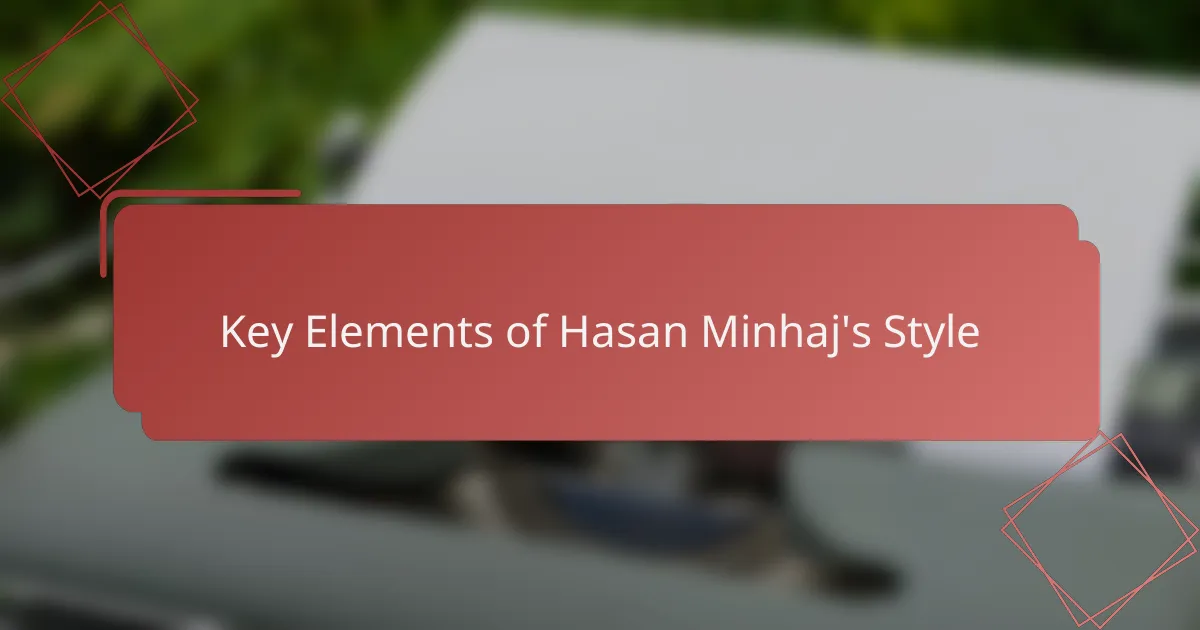
Key Elements of Hasan Minhaj’s Style
Hasan Minhaj’s storytelling style stands out because of his unique blend of humor, personal narrative, and sharp political insight. From my experience watching his specials, what really struck me was how he uses his own life as a lens to discuss broader political issues. This approach made complex topics feel more relatable and emotionally charged for me.
One thing I particularly appreciate is his ability to mix detailed research with genuine emotion, which creates a narrative that is both informative and deeply engaging. His stories often feel like a conversation, not a lecture, which helped me stay connected throughout. Here are some key elements I noticed:
- Personal anecdotes that humanize political issues
- Use of data and visuals to support arguments
- A conversational tone that invites empathy
- Clever humor that balances serious topics
- Clear structure with a narrative arc
- Cultural references that enhance relatability
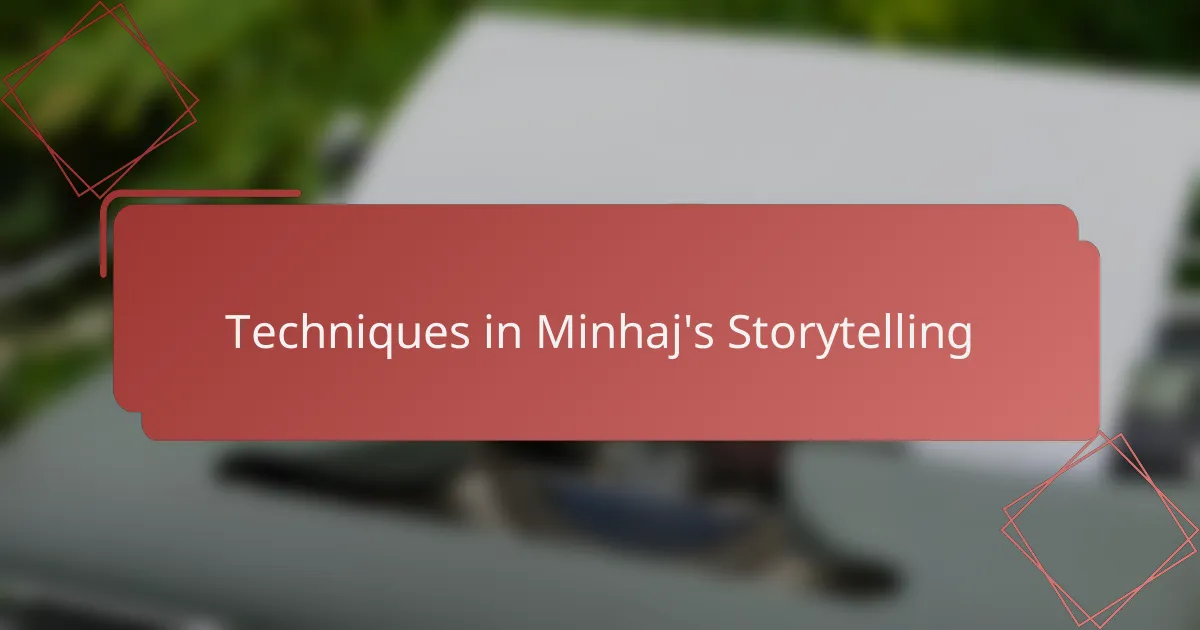
Techniques in Minhaj’s Storytelling
What really fascinated me about Hasan Minhaj’s storytelling techniques is how seamlessly he weaves data into his narrative without making it feel dry or overwhelming. Have you ever sat through a political speech bogged down by numbers? He avoids that by turning statistics into visual stories that almost pop off the screen. This not only made me grasp complicated issues instantly but also kept me hooked emotionally.
Another technique that stood out is his masterful use of personal anecdotes. I remember one moment where he shared a family story that revealed the human side behind a political policy. That vulnerability made the satire hit harder because it wasn’t just abstract criticism—it was rooted in real experience. It prompted me to think, “How often do we forget the personal impact behind political decisions?”
Lastly, his conversational tone feels like a chat with a smart, witty friend rather than a formal lecture. This gave me space to laugh, think, and sometimes even feel uncomfortable—all at once. I find myself asking, “Why can’t more political satire be this approachable and multilayered?” Minhaj’s technique creates a storytelling rhythm that invites the audience into the conversation, making every joke and fact feel purposeful and connected.
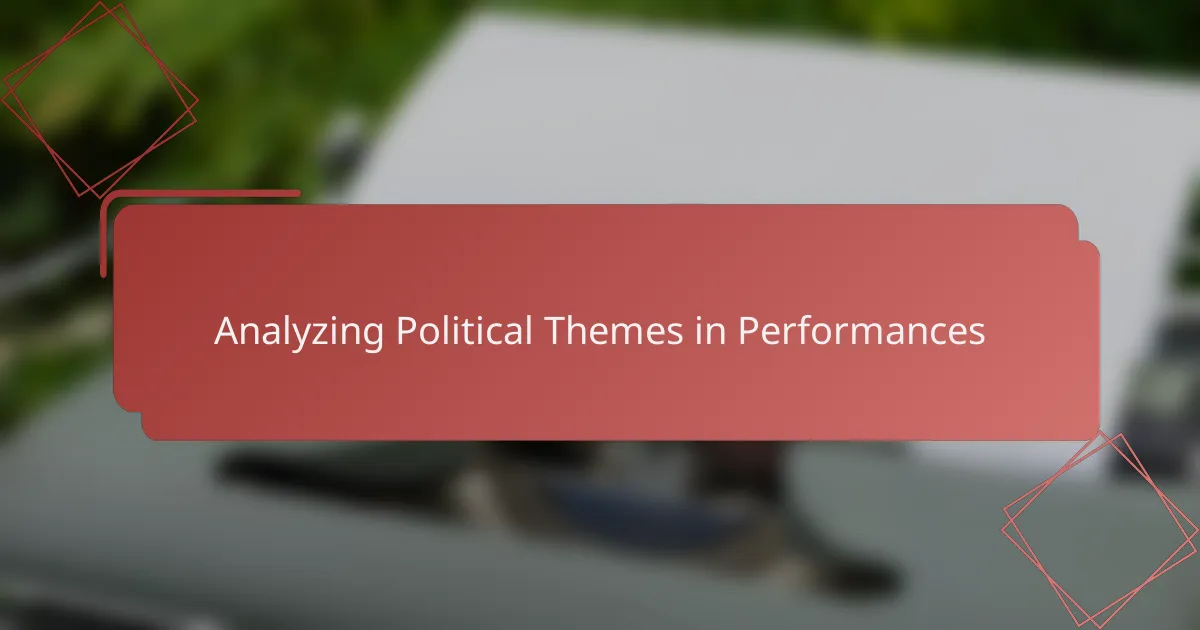
Analyzing Political Themes in Performances
Hasan Minhaj has a unique ability to weave political themes into his performances in a way that feels both personal and universally relatable. When I watched his show, I was struck by how he used humor not just to entertain but to unpack complex political issues, making them accessible without diluting their seriousness. His storytelling often triggered a mix of laughter and reflection, which I found both refreshing and thought-provoking.
One moment that really resonated with me was when Minhaj talked about immigration policies. His way of blending personal experience with sharp political critique created an emotional connection that went beyond the typical political satire. It made me realize how storytelling can be a powerful tool to challenge prevailing narratives while engaging audiences on a deeper level.
Key elements of Hasan Minhaj’s approach to political themes include:
– Using personal anecdotes as entry points to broader political discussions
– Balancing humor with critical insight to maintain audience engagement
– Highlighting underrepresented perspectives to challenge dominant political narratives
– Employing vivid storytelling techniques to humanize complex policies
– Creating an emotional tone that encourages both laughter and empathy
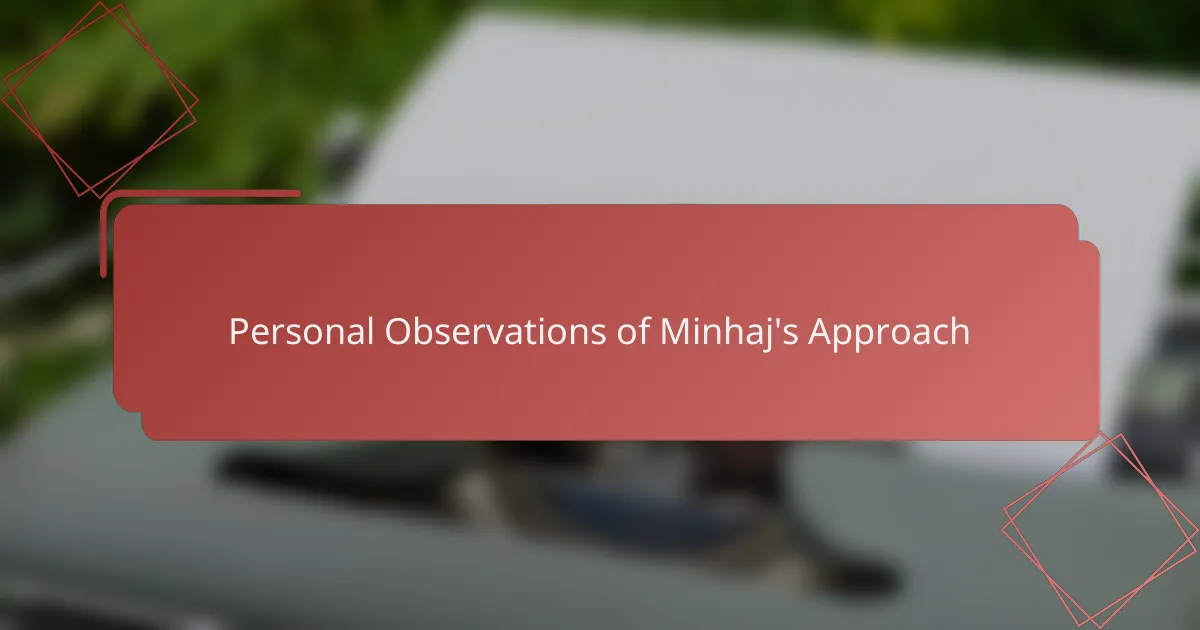
Personal Observations of Minhaj’s Approach
Personal Observations of Minhaj’s Approach
Hasan Minhaj has a unique knack for blending sharp political critique with personal storytelling that feels both intimate and universally relatable. I remember watching one of his episodes where he seamlessly transitioned from a humorous family anecdote to a serious examination of immigration policy—this balance made the complex topic much more accessible. His use of humor isn’t just for laughs; it draws you in, making the political points hit harder without feeling preachy or dull.
| Aspect | Hasan Minhaj |
|---|---|
| Storytelling Style | Personal anecdotes combined with political analysis |
| Tone | Conversational, humorous, yet insightful |
| Audience Engagement | Relatable stories that humanize political issues |
| Use of Humor | Balances satire with empathy to avoid alienating viewers |
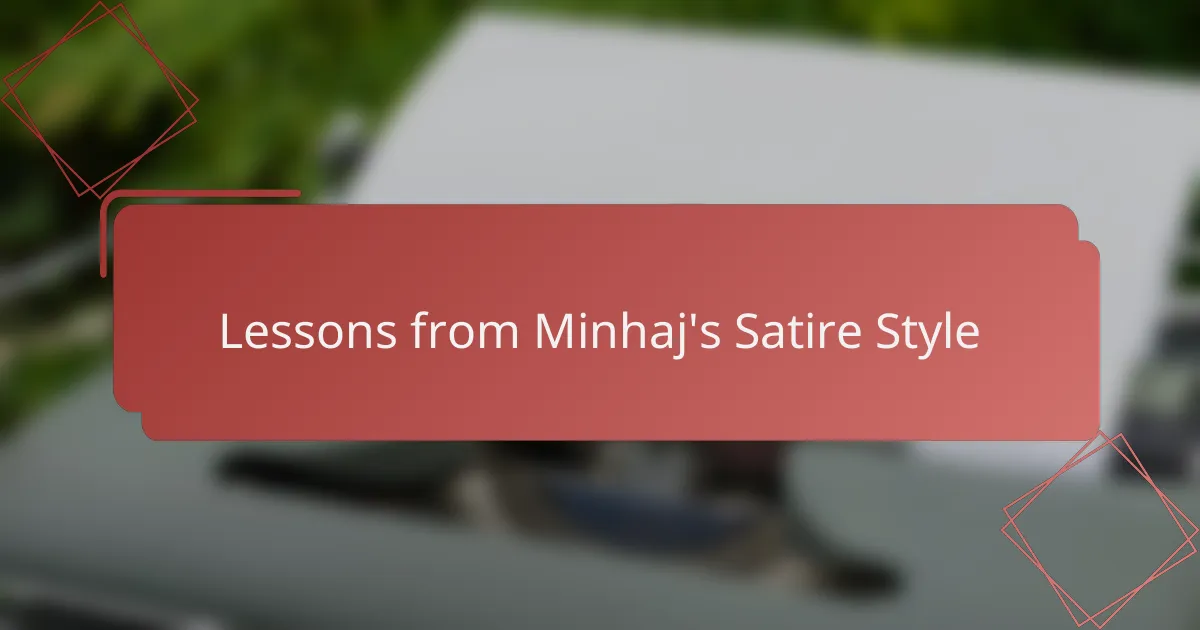
Lessons from Minhaj’s Satire Style
Lessons from Minhaj’s Satire Style
Hasan Minhaj’s storytelling packs a punch because he blends humor with sharp political insight. I’ve noticed his ability to connect personal experiences with broader social issues makes his satire not just funny but deeply relatable and thought-provoking. Watching him, I often find myself both laughing and reflecting, a balance that many satirists strive for but few achieve.
| Aspect | Hasan Minhaj’s Approach |
|---|---|
| Humor Style | Mixes personal anecdotes with sharp political commentary |
| Relatability | Uses personal and cultural stories to engage diverse audiences |
| Emotional Impact | Creates balance between laughter and serious reflection |
| Delivery | Conversational, dynamic, and visually supported by storytelling aids |
